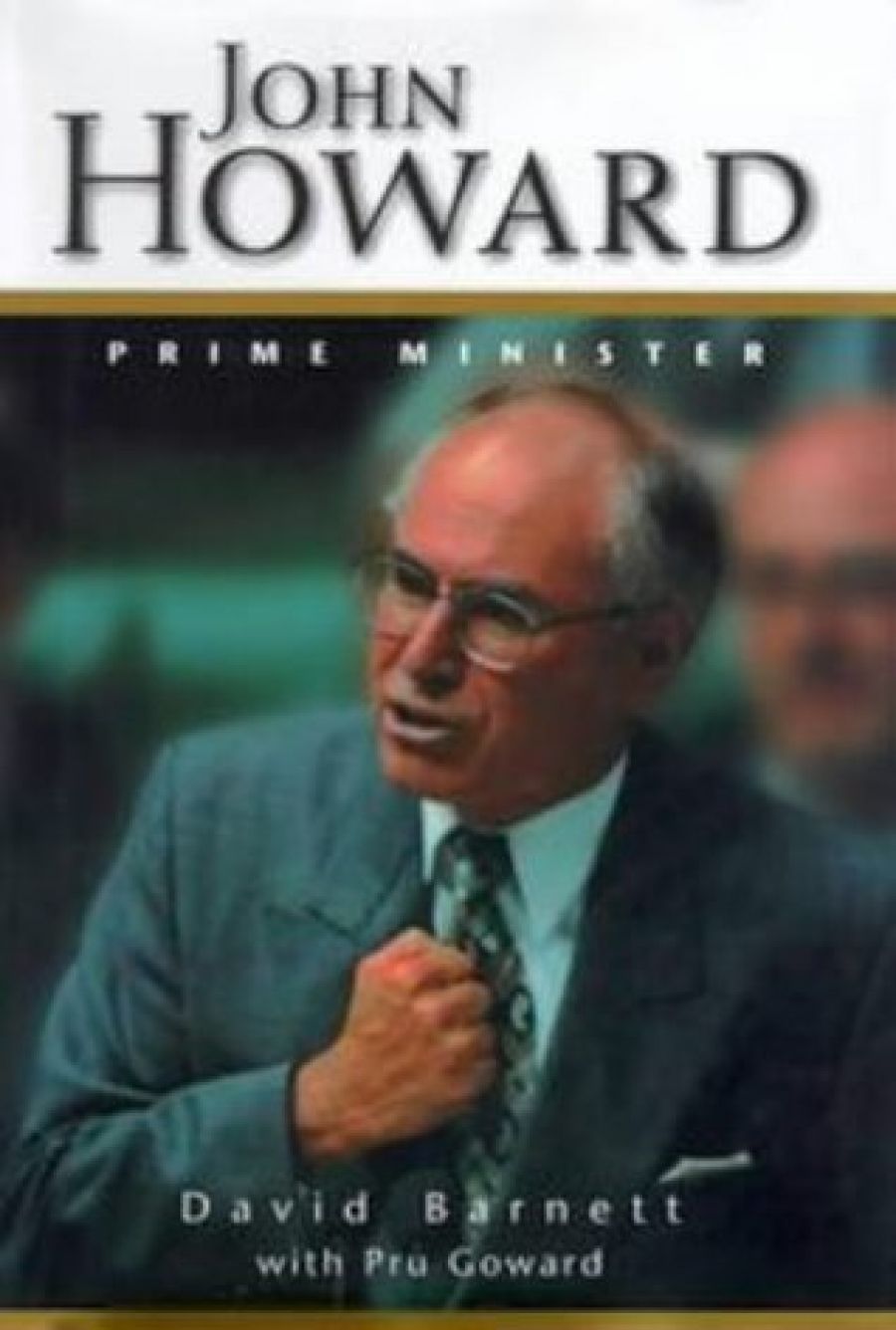
- Free Article: No
- Review Article: Yes
- Article Title: Good Guys and Bad Guys
- Online Only: No
- Custom Highlight Text:
This is a tale of good guys and bad guys. The bad guys (mostly called Whitlam, Hawke, or Keating) are zealous lackeys of two ogres called Centralised Wage Fixing and Political correctness. They are often helped by other guys (frequently called Peacock, Elliott, and Bjelke-Petersen) who pretend to be good but aren’t.
- Book 1 Title: John Howard
- Book 1 Subtitle: Prime Minister
- Book 1 Biblio: Viking, $49.95 hb, 806pp
That all this was not self-evident to voters is because ‘uncritical, gullible’ journalists, refusing to ‘tolerate any divergence from political correctness’, left ‘largely unreported’ the Coalition’s ‘many good deeds’ while ‘explain[ing] away’ Labor’s mismanagement. Like many before him, Barnett confuses the messenger with the message, declaring that Howard’s reluctance to announce all his policies early in the 1996 election campaign was unpopular ‘mainly because [it was] taken so seriously by the media’.
The scope of some judgements stretches credulity beyond breaking point. These include the astonishing claims that New South Wales is the ‘only state whose people invariably describe themselves as “Australians” rather [than] by their state origins’ and that Victoria’s Age newspaper has been ‘unrelentingly hostile to the Coalition parties for twenty years’ (despite, it seems, having employed Michael Barnard and Padraic McGuinness as columnists).
Others, while not necessarily wrong, are based on defective (or no) reasoning. The text teems with unsupported magisterial pronouncements, contending, for instance, that Bob Hawke’s appeal rested largely on his ‘raffish larrikinism and a reputation for boozy womanising’, that Labor was always happier when Howard was not Liberal leader and that ‘a handful of reporters, most of them young’ ensured that Peacock defeated Howard in a 1989 leadership contest. Many of these pontifical utterances do not rise above the level of dismissive sneers. Such are the assertion that Paul Keating, having ‘a body like a Pilsener bottle … wore his expensive suits because he needed to’ and the stigmatising of more liberal Liberals as people who ‘wet themselves’ when ‘the going gets tough’ and ‘believe what they read in the newspapers’.
Alleged outcomes are confused with motives – as when Labor’s Mick Young is accused of favouring compulsory disclosure of political donations ‘to open business firms to intimation by trade unions’. And what evidence is provided is often inadequate. Paul Keating’s late arrival in parliament (on one occasion) does not lend ‘weight to the corridor gossip about [his] relaxed working hours’. There is no bibliography and only thirteen endnotes – although reference is made to interviews conducted with Howard and various family members and associates.
Issues are often monumentally over-simplified. Thus, immigration is decried as ‘an economic burden’ which increases competition for jobs, but no reference is made to its undoubted concomitant economic benefits. Similarly, in arguing that the 1996 Wik decision faced Australia ‘with the prospect of ruin’, Barnett fails to point out that it gave priority to pastoralists’ interests over those of native title in holders.
Finally, all this is developed in a fog of vagueness. Crucial expressions (such as ‘political correctness’ and Paul Keating’s ‘divisive form of multiculturalism’) are inadequately elucidated, as is the significance of some of the information supplied. (Why, for example, are we told that the one High Court judge, a Fraser appointee, who dissented from the Mabo decision was the Court’s only non-Roman Catholic?)
It is regrettable that at a time when the country faces the prospect of an early election that could be a significant watershed, defining us as Australians for many years to come, this book, by sacrificing trenchant critical analysis to ingenuous adulation, does so little to help us understand the man who will be seeking a second term as Prime Minister.


Comments powered by CComment